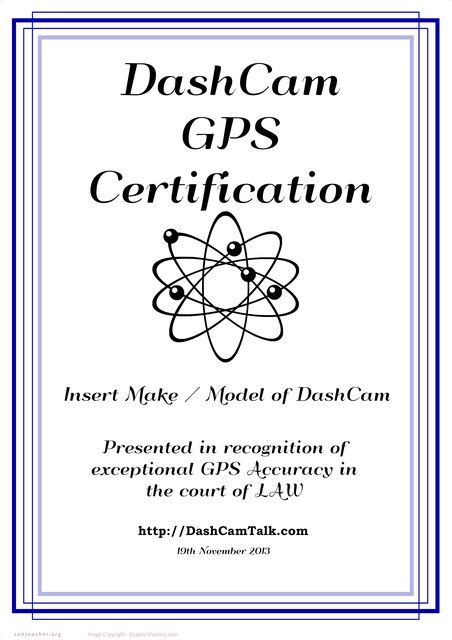jginnane_
Member
- Joined
- Nov 1, 2013
- Messages
- 51
- Reaction score
- 11
- Location
- coastal NJ, USA
- Country
- United States
- Dash Cam
- Powerucc Panorama2, GoPro Hero2 (x2), G1W (x2)
Several months ago I was stopped by a PO with a laser unit. He said I was traveling 80+mph. I pointed to him our on-dash TomTom GPS had indicated I was in the low-mid 70s. The officer spoke about his own unit's speed certification and said he was happy to address this in court. We politely disagreed, and I was lucky enough to received a violations ticket (no points, just $$ fine).
QUESTION: How can we establish the reliability of GPS in our dash cams for LE? The TomTom unit mentioned above did not save a record, but any decent dashcam w/ GPS option will record right on the video. In a court, you would (apparently) have to play the video, then measure distance traveled between landmarks versus the clock to show that you were accurate. But I think this could be subject to challenge by the other side, especially in terms of quick-happening events in a multiple car accident.
Is there a GPS certification procedure available? Are some models offered with GPS accuracy certified?
QUESTION: How can we establish the reliability of GPS in our dash cams for LE? The TomTom unit mentioned above did not save a record, but any decent dashcam w/ GPS option will record right on the video. In a court, you would (apparently) have to play the video, then measure distance traveled between landmarks versus the clock to show that you were accurate. But I think this could be subject to challenge by the other side, especially in terms of quick-happening events in a multiple car accident.
Is there a GPS certification procedure available? Are some models offered with GPS accuracy certified?

